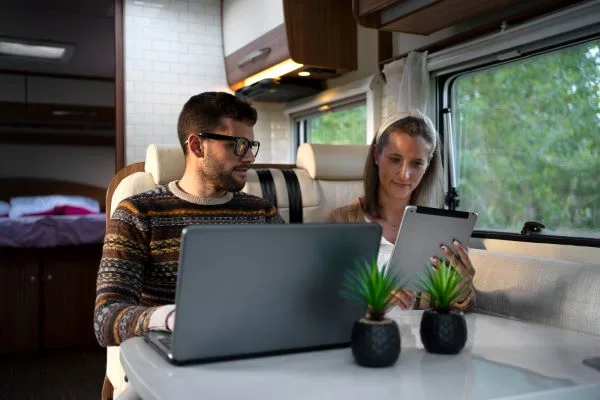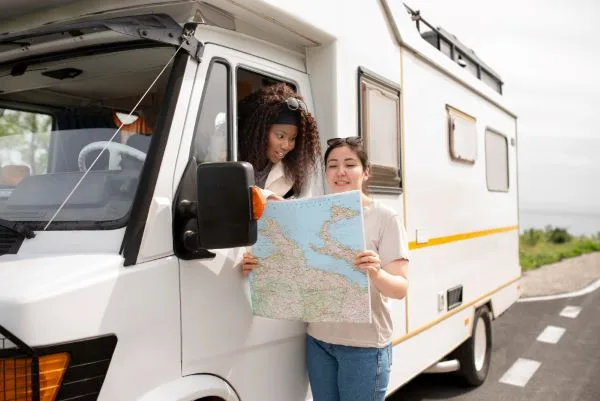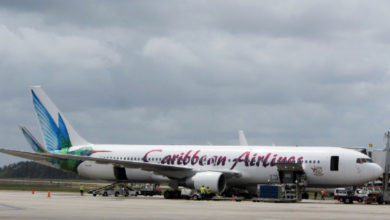A First-Timer’s Guide to the Perfect RV Trip


Nothing compares to the thrill of hitting the road in a trailer or camper van. Probably the best part of RV travel is stopping at different locations without worrying about hauling luggage from one hotel to the next.
However, planning an RV trip involves a lot of work, from learning how to RV and getting your gear together to mapping the routes and budgeting. All these can be overwhelming for a first-timer. But there’s no need to worry. This article is your ultimate guide for your first RV trip and the essential steps to making it as enjoyable as possible.
Choosing the Perfect Destination for Your First RV Trip
Where will your first RV trip be? Selecting your destination is a critical consideration when planning your trip. It’s up to you to decide on a single destination, extend your stay, or schedule a trip with multiple spots.
But before making this decision, lay out your interests, preferences, and objectives for your trip. Are you planning an RV trip to visit a friend, attend a festival, or get away with your family? Do you want to commune with nature or visit a particular attraction?
When choosing your destination, it’s also beneficial to consider your point of origin. Picking somewhere close to where you start your trip makes more sense if you have limited time.
Popular destinations for RV camping trips typically include historic sites, national parks, beaches, and scenic routes. Allocate some time to researching them, as they often have a wealth of resources, from high-end RV resorts to stations for maintenance or washing.
You may already have a list of specific destinations in mind. But if you need suggestions, Las Vegas is a great place to start. It’s one of the most friendly destinations for RV travelers, regardless of experience level.
Options for RV rental in Las Vegas are close to 700, so you will likely find one that matches your preferences, needs, and budget. Renting can be a sensible choice if you’re not yet ready to make a purchase. Likewise, buying can be more economical in the long run if you plan to take multiple trips.
Key Steps to Planning Your RV Trip for the First Time
After you’ve chosen your destination, it’s time to plan the trip details. It may seem daunting, especially if it’s your first time. You can use an RV trip planner to make the process easier. But here are key steps you can take to ensure a smooth and enjoyable RV trip:
Research your itinerary
Creating an itinerary for your RV trip may require some research. After selecting your destination, write down specific areas you want to visit, for how long, and what activities you want to do there. Research popular activities and attractions in the local area.
You can customize and incorporate anything you want into your RV itinerary. However, include the basics, such as specifying your trip’s start and end times and mapping the routes and rest stops. Here are a few considerations when planning your RV route:
- Road conditions that may be hard to navigate with an RV
- The weather of your destination and along the route
- RV resorts and campgrounds that provide parking options for your trailer, camper van, or motorhome
- Unexpected closures that may cause delays in your RV travel plans
Outline your RV travel budget
Traveling in an RV comes with a cost, which can differ depending on the destination and length of the trip. Another factor to consider is the type of RV you choose and whether you rent or purchase one. Regardless, budgeting is an essential part of the planning process.
It will help you determine how often you dine out and how much you’ll spend on groceries and emergency funds if something expensive malfunctions. Budgeting also lets you assess RV parks or campgrounds you can afford.
Below are some of the costs you can include in your RV travel budget:
- Expenses associated with renting or buying an RV
- Fuel costs
- Food and supplies
- Campground and park fees
- Entertainment costs
Reserve your campground
Although optional, making camp reservations is crucial, especially during peak seasons. It will help you avoid the stress of finding a place to sleep at the last minute.
Booking ahead also helps ensure that the campground can accommodate an RV of your size. Moreover, most parks and establishments have a reservation system for guests. Besides booking campgrounds, it’s also wise to purchase your tickets and plan your itinerary ahead of time.
Get the RV ready and packed
Thorough planning and organization are vital when preparing your RV for the journey. You want to avoid overloading the RV with unnecessary items, as it can impact its stability and make navigation difficult.
At the same time, you must not overlook the essentials. Ensure you have everything you need for your trip. Various RV essential checklists are available online. But to give you an idea of what to bring, here are a few examples:
- Emergency kit and RV toolbox
- Kitchen and cooking supplies
- Food staples
- Personal items and toiletries
- Camping and outdoor gear
Prepare to deal with unexpected situations
Some circumstances may be beyond your control, such as weather changes that can affect your trip. Stay informed about the forecast to prepare for any changes in the weather conditions, such as rain, storms, or temperature fluctuations.
You may also encounter mechanical problems in your RV. Before hitting the road, regular maintenance checks can help you promptly identify and address issues. Additionally, equip your RV with essential tools and spare parts.
Create Lasting Memories on Your First RV Trip
You’re probably looking forward to a perfect RV trip. With proper research and planning, you can minimize stress and make the journey worthwhile. But mistakes and disruptions can happen, no matter how prepared you are.
While it’s essential to be careful and always ready, remember to enjoy the trip and create lasting memories. Learn to adjust your expectations. Flexibility is an integral part of a successful RV trip. You can have a memorable RV trip even if things do not always go as planned.





